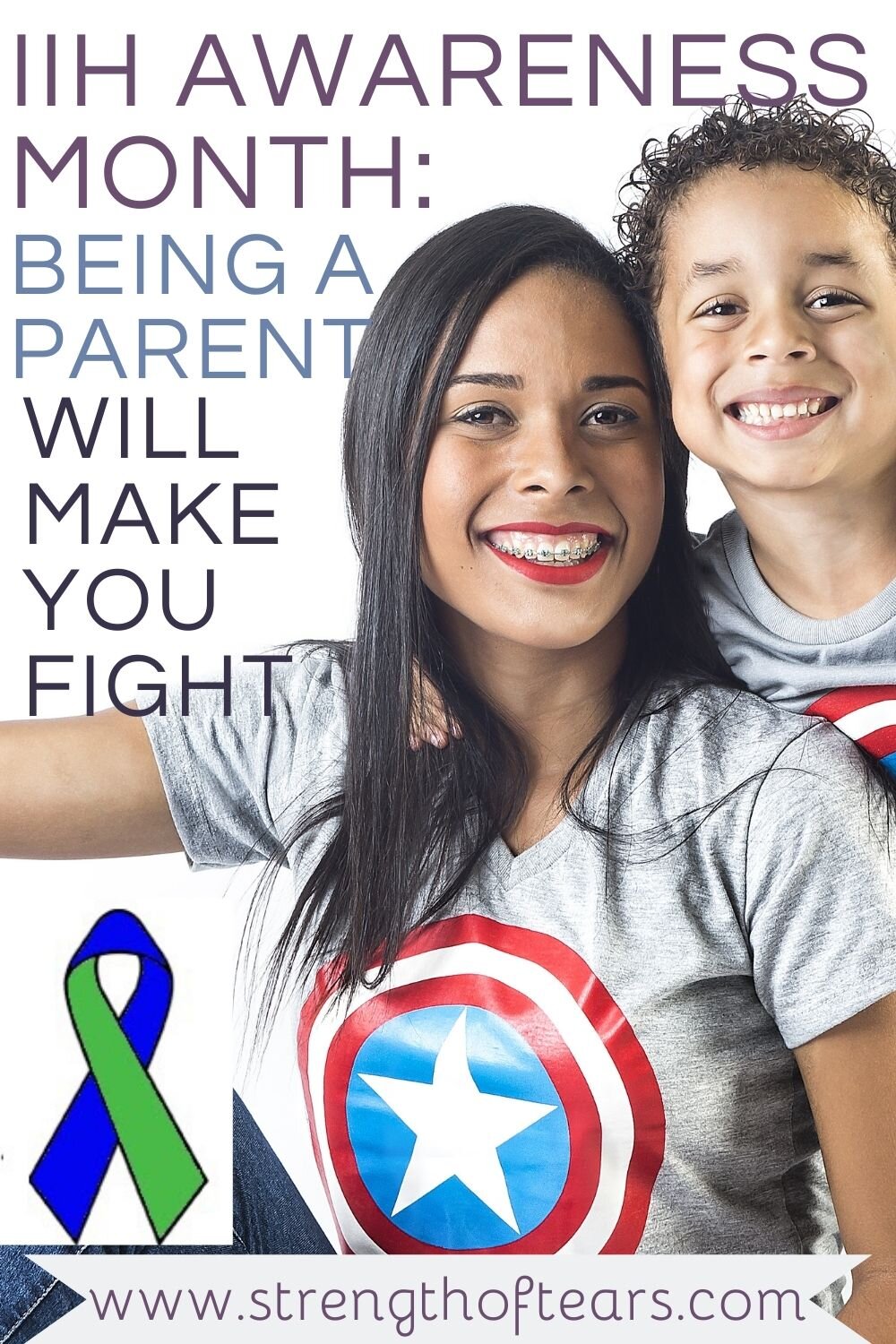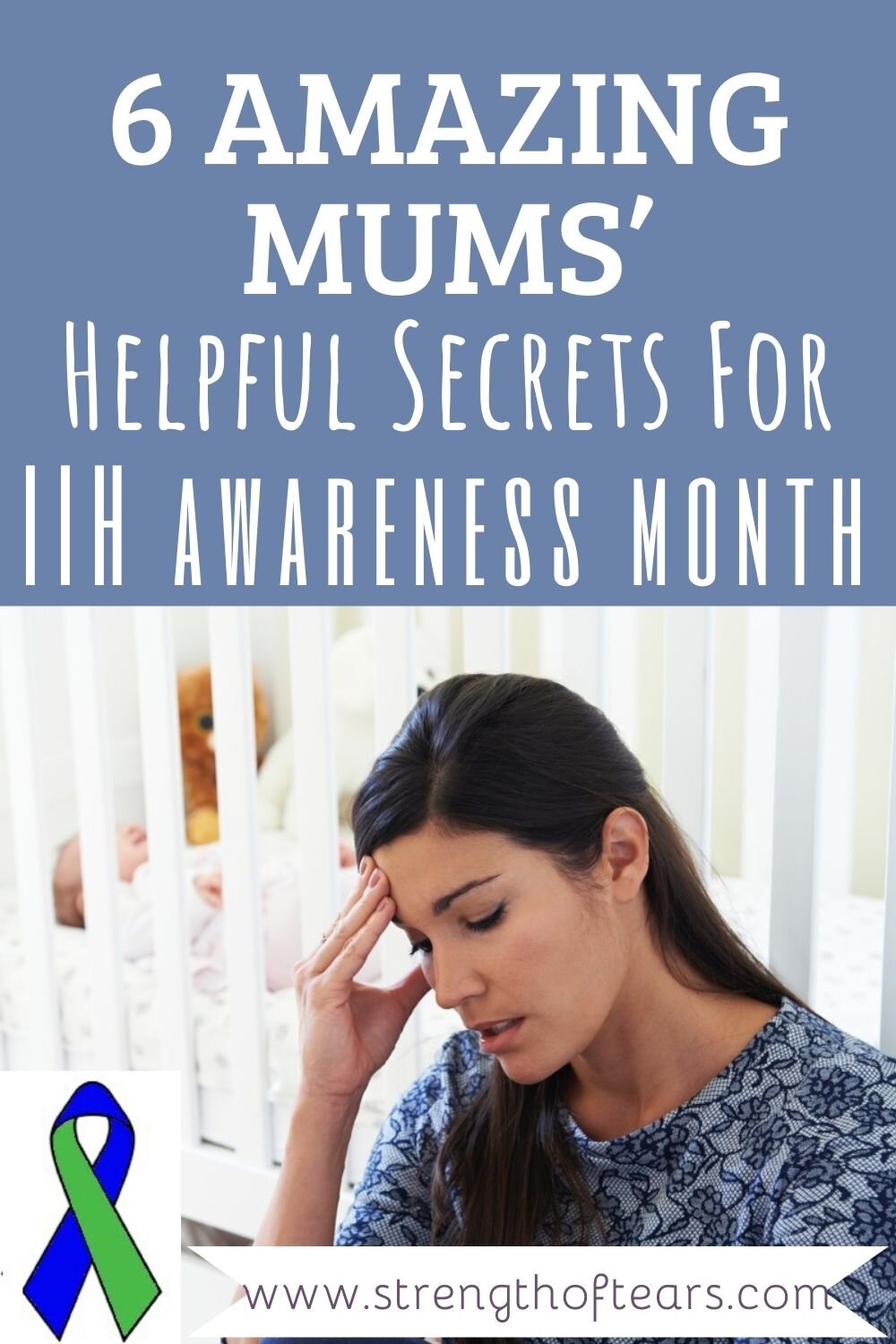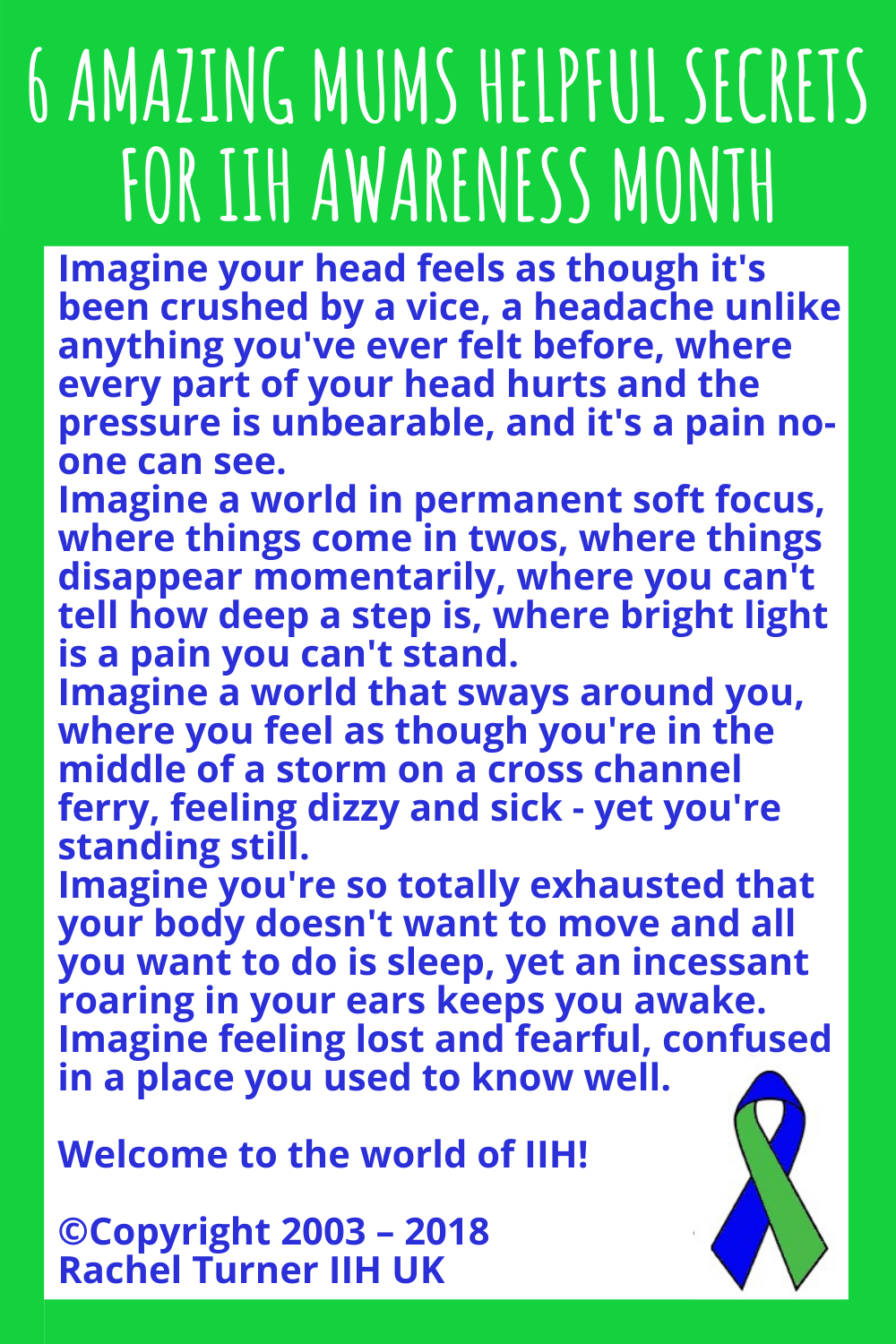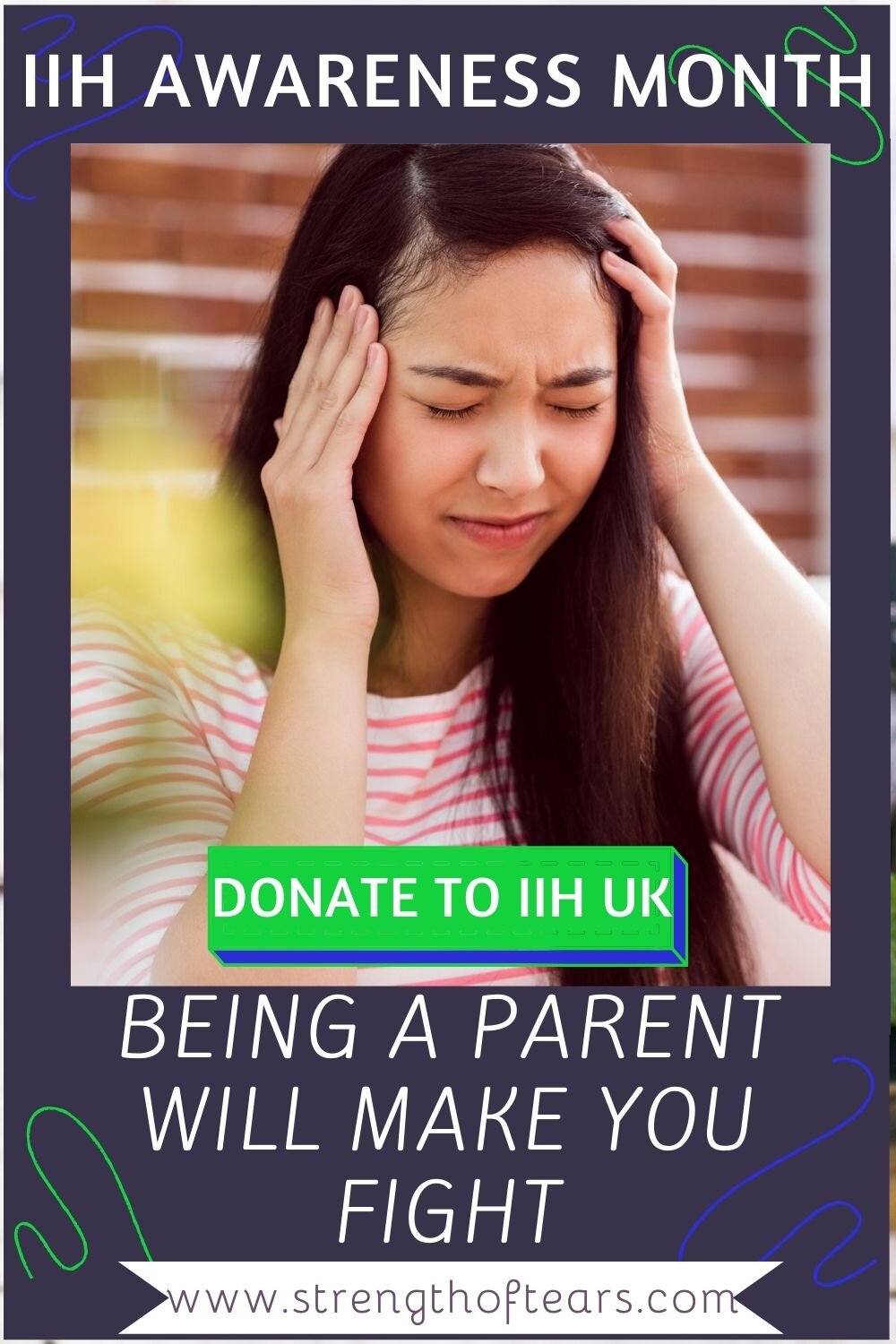6 Amazing Mums Helpful Secrets For IIH Awareness Month
6 Amazing Mums Helpful Secrets For IIH Awareness Month
When I was diagnosed with Idiopathic Intracranial Hypertension (IIH) in 2014, I worried about the impact on my boys' lives. They were 10 and 11 and it was hard on them. I was lucky as my husband stood by me as we adapted our parenting.
But every parent with this condition has a different experience, for September’s IIH Awareness Month, I asked 6 amazing mums from the IIH UK Facebook support group, about their secrets as a mum with Idiopathic Intracranial Hypertension to help other mums in a similar position.
We’ve done this in the hope that we can fundraise for IIH UK so we’re sharing how IIH affects us as and our children to raise awareness of this rare brain disease. We’d be very grateful if you could make a donation to IIH UK to fund research.
This invisible illness affects our role as a parent but many of us push through the pain, hiding how we feel from friends and family. One mum I spoke to said that when she’s in so much pain she cries, she hides to avoid her children seeing her like that. We’ve spoken up this IIH Awareness Month with the hope of sharing the secrets of being a mum with IIH life.
What Is IIH And Who Gets It?
IIH occurs when levels of cerebrospinal fluid (CSF), which plays an important role in cushioning the brain, gets too much and the skull can’t expand so the pressure increases. The meaning of the term Idiopathic Intracranial Hypertension is:
Idiopathic - unknown cause
Intracranial - in the skull
Hypertension - high pressure
This condition is found more commonly in women but does affect about 10% of men. It’s common in teens and young women, but can affect children and adults of any age. IIH occurs in 1-3 people in every 100,000. This is higher in those who are obese.
The ladies I’ve asked, Sophie, Keri, Leah, Alexandra and Claire and myself range from 21 up to two of us, including myself, being in our forties. Two ladies have been diagnosed in the last year, with many feeling we had symptoms before our diagnosis.
During IIH Awareness Month, I believe it’s important to use this platform as a voice for these mums to share their experiences and thoughts about parenting with IIH. By sharing what we live with each day we can show our similarities and differences.
How Is IIH Diagnosed And What Are The Symptoms?
IIH Awareness Month is about raising awareness of this condition. To be diagnosed with IIH someone needs to have brain scans and a lumbar puncture (LP), also called a spinal tap. These 5 things to rule out other conditions and confirm IIH:
Papilloedema (swelling of the optic (eye) nerves
Normal neurological examination (sixth nerve palsy causing double vision is allowed)
Normal brain imaging. This is usually a CT or MRI scan
Normal brain CSF analysis
Elevated lumbar puncture with an opening pressure, usually above 25cm
As diagnosis requires an LP or spinal tap, this can be quite distressing. Read this leaflet for more information about the procedure.
Sophie was the only mum here to have had a negative experience with an LP. She said “the first one I ever had knocked me for six. I ended up in hospital for a week... due to too much pressure removed. It was very hard on my boy because he’d never been away from his mummy.”
Papilloedema occurs when CSF pressure compresses the nerves supplying the eye. This affects vision and may lead to vision loss, meaning emergency treatment, such as shunt surgery, may be needed to save vision. Please read this leaflet from IIH UK about shunts.
I asked the ladies about their 3 worst symptoms. This differed between each of us, with a few ladies saying their symptoms differ daily. Alexandra said “My symptoms differ from day to day, however I have a handful of symptoms that affect me most.”
All six of us said that headaches or ‘migraine’ was one of our worst symptoms. Sophie described it as: “Migraines, where I physically can not open my eyes or move my head. [Migraine] has also caused me to have memory loss from the pain.”
She goes on to say “I find that this condition comes with a problem. People stereotype it as headaches, and nothing else, [saying] ‘go take a paracetamol, you’ll be fine!’. I hate that, when my head is so bad, I can’t open my eyes.”
However 6% of people with IIH never have papilloedema and headaches are more telling as to their diagnosis. This is called IIH Without Papilloedema (IIHWOP) and is harder to diagnose. I was given this diagnosis in 2014. You can read about my diagnosis story here.
Another common symptom is brain fog, feeling like you’re spaced out, which is described well by Keri: “I drive my children nuts as I start a conversation and then just stop, as I can not remember what I was saying.” This and having difficulty understanding words is called aphasia.
For IIH Awareness Month I want to share the mostly common symptoms other than headache and Papilloedema, that the mums shared with me:
Vomiting and nausea
Memory loss or brain fog
Pulsatile Tinnitus - a whooshing or throbbing in the ears (in time with the heartbeat)
Dizziness and Vertigo
Black outs
Temporary Eyesight/Vision problems
Tunnel Vision
Hearing sensitivity
Neck pain
Eye pain, described as “stabbing pain behind the eye”
“loss of feeling in my legs and arms”
Alexandra spoke about her worry about “The loss of feeling and vision [being] quite dangerous, especially being a mother. I don't have any sign that the loss is coming on so things as simple as walking downstairs with my son can be potentially dangerous!”
Watch this short video about the symptoms made by IIH UK
As it’s IIH Awareness Month I've also included this descriptive piece written by one of a group of founding members of IIH UK, Rachel Turner.
What Treatment Is Available?
IIH is often treated with weight loss as, although not all people who are overweight develop IIH, there is a big link. Medical studies have shown an increased chance of developing IIH as weight increases. This leaflet from IIH UK explains more about this.
Despite there being a strong link between weight gain and IIH, only one of our Mums spoke positively about weight loss, saying that it put her into remission for a long time. Another said that she didn’t “necessarily believe weight loss is the answer for this condition.“
For more IIH Awareness Month detail I asked the mums about other treatment such as Topiramate, a common migraine treatment which most of the Mums are on and Diamox, which decreases CSF production but causes many side effects, which is why Sophie came off this medication.
Surgery is also used to decrease CSF production, usually via shunts. I’ve had stent surgery but none of the others have had surgery, some due to other illnesses. Lumbar punctures can also be used to release excess CSF and 2 of these mums said they’ve had a countless LPs as they are unable to have surgery due to pre-existing conditions.
“
The relief from a LP is typically short lived as CSF is secreted from the choroid plexus at a rate of 25 mL/hour and consequently the volume removed in a so-called therapeutic tap is rapidly replaced
”
All treatments for IIH impact your quality of life, with the many side effects of medication or if you’re recovering from LPs and/or surgeries. The mums I spoke to for IIH Awareness Month have shared how they've been affected but we’re all different so our treatment is personal to us. Read this article from the British Medical Journal for medical insight into managing
What Is It Like To Be A Mum With IIH?
Claire has 2 children and was diagnosed in 2018 but had symptoms in 2015 whilst pregnant. She says that the worst part of having IIH is “not being able to take my girls out as much as I can never plan anything, as I don’t want to disappoint my youngest who doesn't understand if mummy has to cancel things.”
Leah has 3 young children and was diagnosed in the last 3 months of when I wrote this IIH Awareness Month Blog. She feels that she’s not “the fun mum who used to dance and sing. When my kids ask ‘can you play’?...and there little faces just drop.” But her “children are so good and do understand that I'm more unwell than I am well”.
Keri has 3 adult children and was diagnosed two years ago but thinks she’s been suffering for 20 years or so with what she was told was migraine. She said “IIH has changed me. I am not as confident as I used to be.” As a working mum Keri has reasonable adjustments in place and says “if I’m feeling tired or have headaches” I can have office based time but “by Friday I am ready to collapse and I spend the whole weekend recouping.”
Sophie has 2 children and was pregnant at time of writing. She was diagnosed in 2013/14 and says “when my head is so bad, I can’t open my eyes.” But after an LP, her husband and son notice she has higher energy levels and is less grumpy.
Having a support network of some kind is something I feel I couldn’t do without and as part of IIH Awareness Month we want others around us to stand by us. Sophie says she’s “happy I do have the support of my family and friends, even with the lack of understanding.”
Leah said “I do have a lot of support from my mum, she's my rock. I would be lost without her and my mother in law.” Claire said “My partner has taken up a lot of the cleaning as I struggle with bending up and down too much as it makes my head feel weird.”
Alexandra was diagnosed with IIHWOP in 2019 and has a young son. He knows that mummy can be sick quite a lot. She talked about the impact on her mental health, which is important to raise this IIH Awareness Month. She said “some days I find myself shouting for no reason… It breaks my heart because my toddler obviously doesn’t understand.”
People with IIH are at risk of developing mental health problems or have preexisting conditions worsen or reacting with medication. Sophie said ‘it’s left me alone and unaided by the world because know one understands. The condition changes our quality of life considerably.
IIH Awareness Month: Being A Parent Will Make You Fight
Due to the symptoms of increased pressure, our behaviour changes with some long term and some short term effects. We all manage this differently but it’s definitely harder to mother with this condition.
It has affected my role as a parent in many ways and the mums I’ve spoken to for IIH Awareness Month feel the same. Our children, at almost any age, understand that we’re sometimes too unwell to play or do activities together.
As my boys are now teenagers, they understand that I struggle to chat on bad days. They’ve understood what surgery I’ve had and they look out for and after me. The common theme from speaking to these mums is that it’s our kids that keep us going.
Claire’s the main carer for her disabled daughter so “doesn’t have much choice but to carry on.” She can have all her “symptoms at the same time and they can last for weeks and they affect everything. They restrict what she can do with her daughter but she can still be there “laying down as it helps with the nausea and dizziness.”
Leah, who’s husband works 8 weeks on and 3 weeks off, feels that IIH has changed her family a lot. “My children do understand but they miss their old mum. If I'm having a good day I try to sing and dance and boom the music just so they know I am still here.” Dancing makes her head hurt but she still does it because she is a mum first.
Keri has adult children so can say she needs time out, however, she is still fighting an invisible illness. She said “I try not to complain about being in pain with either my head or my eyes or the fact that I’m tired because otherwise I’d be complaining all the time and that’s not fair on my family.”
Sophie, who has young children, said “I don’t get extra help with anything. I was a mother first and I will be a mother last.” Despite this she says “I have to lay down from pure fatigue and migraines and hide and cry a lot but I don’t let anyone see.” She’s had one experience when she couldn’t remember her son's name for a day.
For myself, having older boys, I've always been as honest as possible, my husband has helped me explain the surgeries to them. We've learnt strategies to help them cope with the ups and downs and we've developed stronger relationships.
I know I wouldn’t have fought to be here writing this today if I wasn’t their Mum. I spend most days in bed and miss out on going out as a family. So I’ve learnt to be more present and limit distractions when they come and see me, so that even short chats are meaningful.
In my opinion, Mums with IIH think, speak and interact with their kids with more intention. I believe we make the most of the good or better days that we have and that most of us try to hold on to the hope that one day there may be a cure! Sharing these stories in IIH Awareness Month, shows what makes us strong.
The Takeaway
IIH is a brain condition that causes debilitating symptoms due to raised pressure in the skull. It causes severe headaches, vision problems, and even loss of sight as well as many other symptoms.
As it's mostly younger women who develop this condition, I focused this blog on mums for IIH Awareness Month as I wanted to share the impact IIH can have on the role of a mother. 10% of sufferers are men however.
Some of us have a stressful time trying to get an actual diagnosis. Mums that I’ve spoken to have had symptoms for years before being diagnosed. Keri and I are both examples of being misdiagnosed with migraine.
Being a mum with IIH is different for each of us. For those with young children there’s additional mum guilt, although we all get it, because their children are active. Alexandra said it’s “very sad to me as he is just a toddler and I should be able to play and do fun things all of the time but I just can't.”
Having a support network of some kind is something I feel I couldn’t do without. Leah said “I do have a lot of support from my mum, she's my rock. I would be lost without her and my mother in law.” Claire said “My partner has taken up a lot of the cleaning as I struggle with bending.”
I’d like to thank everyone trying to raise the profile of IIH Awareness Month by contributing to this blog and sharing the difficulties we face. Many of us find balance over time. As Sophie said “this is a lifelong condition” that makes us feel that we’re not being ‘us’ anymore”.
Alexandra said “There are days I cannot even get out of bed...I feel horrible because I can't always play and be the fun mummy I would love to be.” Leah sums up “Most of us are constantly wondering what we did to deserve this, but that's life, we get what's thrown at us.”
IIH changes us as women, mothers, partners and the relationships we have with our children and family. We want people to take notice that this is a condition we will live with for our whole life and many of us lose vision to some degree and can even become blind. It really is not just a headache!
Stay safe,
Laura 💚💙
Click here to find out more about me
To help us raise awareness please share this blog on your social media with friends and use #IIHAwarenessMonth. We’d love to be able to raise money for IIH UK so please add the donate button if you share on Facebook or donate now by clicking the link below and making your one off donation.
✋ Hey there! I hope you’re feeling stronger now. If so, sharing the love will help me help other mums with chronic invisible illnesses.⬇ Hit one of those sharing buttons or save these images to Pinterest and I will do a bed-bound happy dance - there's an image for you!











